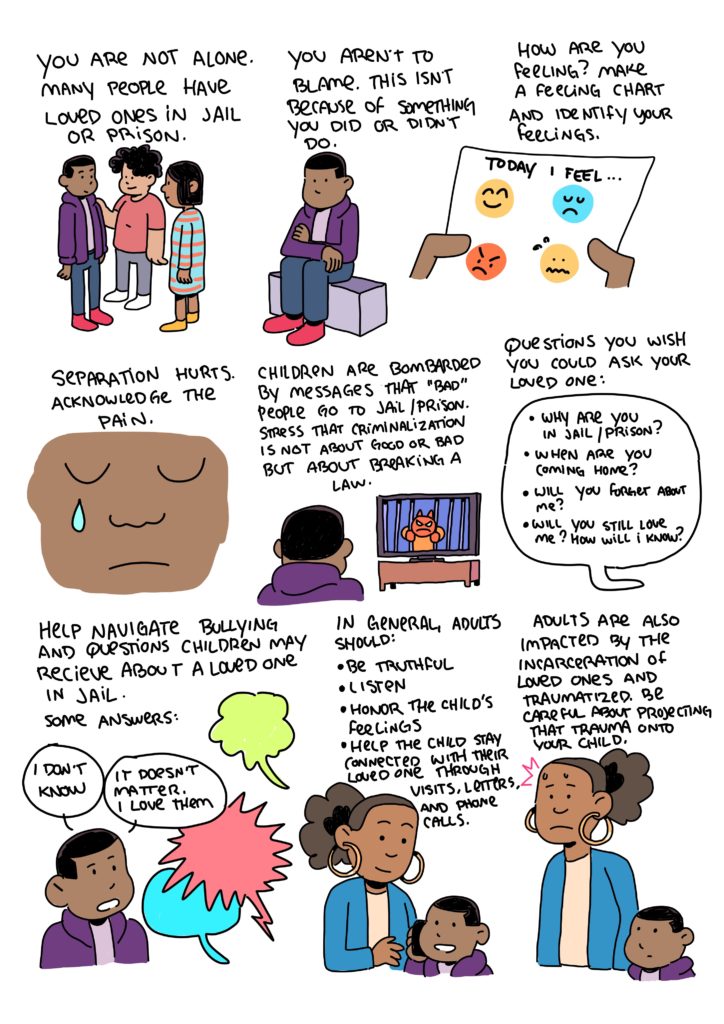Missing Daddy: Talking to Kids About Incarceration
I haven’t posted about it here but I wrote a children’s book titled “Missing Daddy.” It was republished by Haymarket Books and is actually currently on sale if you purchase it directly through them at 50% off for the holidays. I have a website for the book as well that includes more resources.
As I’ve been doing some book events, I wanted to create a document that would summarize some of the things to keep in mind when discussing incarceration with children. For example, I share the following key ideas to discuss with children who have incarcerated loved ones:
You are not alone – many other children and adults have loved ones in jail and prison.
You aren’t to blame – this is not because of anything you did or didn’t do.
How are you feeling? — Let’s identify your feelings. Make a feelings chart. Children experience shame, guilt, loneliness, anger, hurt, mourning, grief, love, sadness, etc.
Separation hurts. Acknowledge the pain.
Children are bombarded with messages that “bad” people go to jail/prison. Stress that criminalization is not about good or bad people but about having broken a law.
Questions some children wish they could ask their loved one:
- Why are you in jail/prison?
- When are you coming home?
- Will you forget about me?
- Will you still love me? How will I know?
Help children navigate questions that others may have. They may experience bullying or persistent questions about what their loved one did to end up in jail/prison. Some things that children can say in response to those questions:
- I don’t know.
- It doesn’t matter to me. I love them.
In general, adults should:
- Be truthful.
- Listen.
- Honor the child’s feelings
- Help the child stay connected to their loved one either through visits, phone calls or letters.
Adults are also impacted by the incarceration of loved ones and can also be traumatized. Be careful about projecting that trauma onto children. What are your own biases, experiences, etc…?

I asked Flynn Nichols to create an illustrated one pager to summarize these key points and he did a terrific job.
